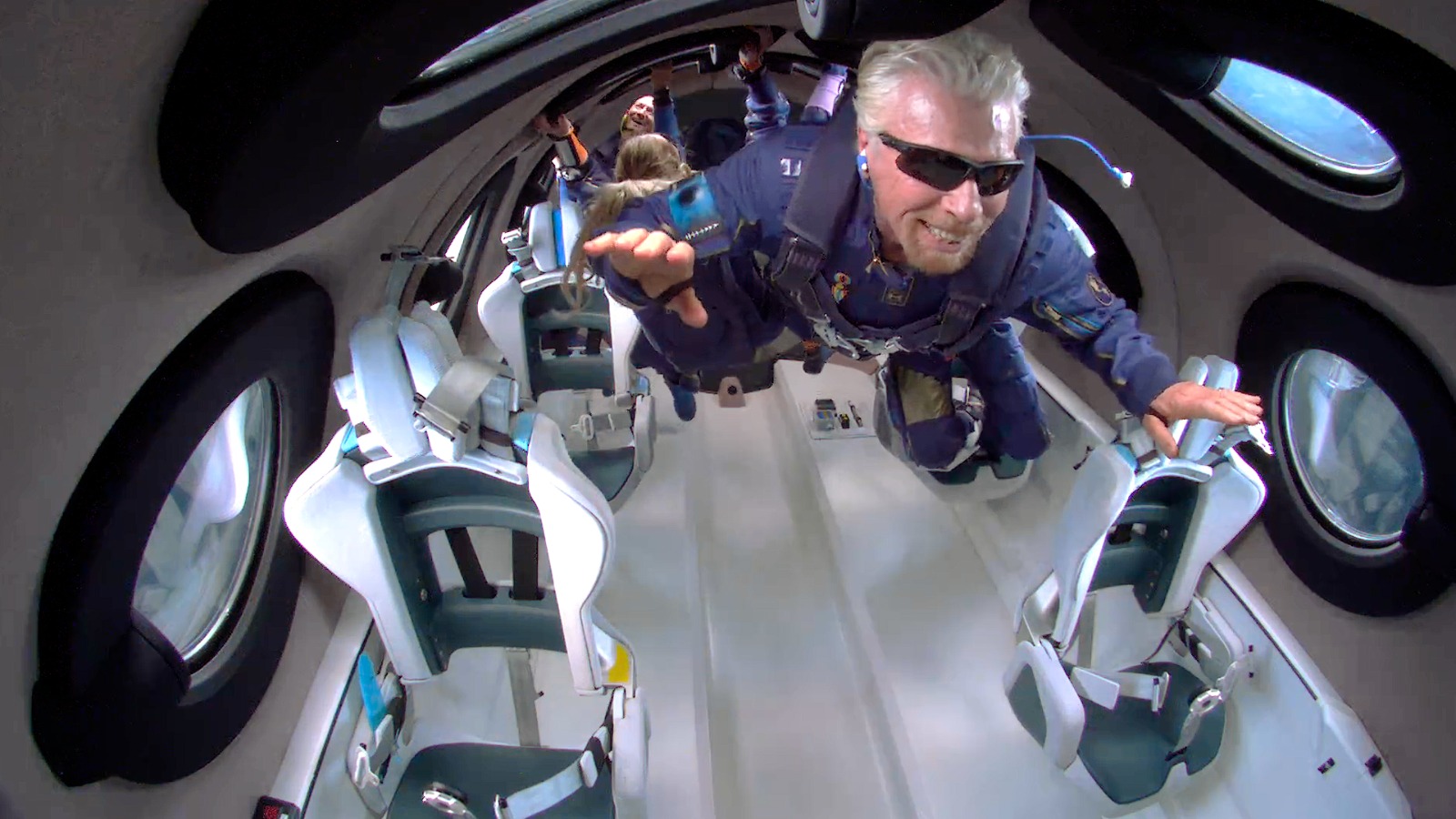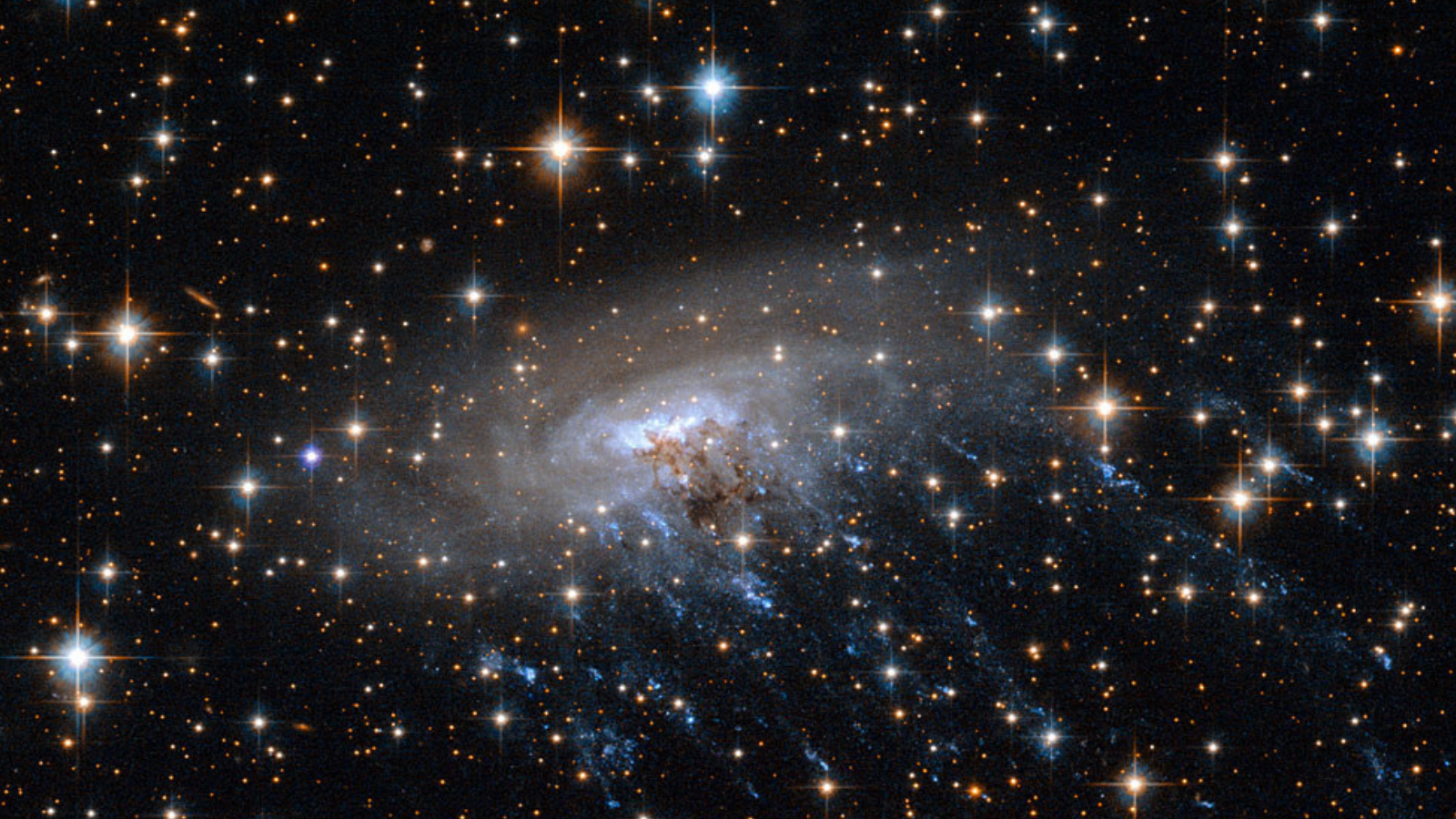Virgin Galactic sells 100 new tickets for space tourist launches

Breaking space news, the latest updates on rocket launches, skywatching events and more!
You are now subscribed
Your newsletter sign-up was successful
Want to add more newsletters?

Delivered daily
Daily Newsletter
Breaking space news, the latest updates on rocket launches, skywatching events and more!

Once a month
Watch This Space
Sign up to our monthly entertainment newsletter to keep up with all our coverage of the latest sci-fi and space movies, tv shows, games and books.

Once a week
Night Sky This Week
Discover this week's must-see night sky events, moon phases, and stunning astrophotos. Sign up for our skywatching newsletter and explore the universe with us!

Twice a month
Strange New Words
Space.com's Sci-Fi Reader's Club. Read a sci-fi short story every month and join a virtual community of fellow science fiction fans!
Virgin Galactic's customer list has grown by more than 15% in the last few months.
About 100 people have bought tickets to ride to suborbital space and back since Virgin Galactic reopened sales in August, company representatives said Monday (Nov. 8) in a quarterly earnings call with investors.
Virgin Galactic now has about 700 folks in its customer pool. The company aims to boost that number to 1,000 by the time it begins commercial operations, a milestone currently pegged for late 2022, Virgin Galactic representatives said.
In photos: Virgin Galactic's 1st fully crewed spaceflight with Richard Branson
The 100 new customers are paying $450,000 apiece for their space trips. That's considerably more than their predecessors; in the previous round of ticket sales, which closed in late 2018, the price was $250,000 per seat.
The new sales have come in the wake of Virgin Galactic's first fully crewed spaceflight, a test mission that sent Virgin Group founder Richard Branson and three other passengers, plus two pilots, to suborbital space on July 11 aboard the company's space plane VSS Unity.
After that flight, known as Unity 22, "we opened up kind of our interest list," Virgin Galactic CEO Michael Colglazier said during Monday's call.
Breaking space news, the latest updates on rocket launches, skywatching events and more!
"And we had around 60,000 people say, 'Yes, please send me information about your product, your spaceflight. I'm interested in flying to space,'" Colglazier added. "We think many, many of those people will want to actually make the trip, with all of what's involved."
VSS Unity lifts off beneath the wings of a carrier plane known as VMS Eve. Once the pair reach an altitude of about 50,000 feet (15,000 meters), the space plane drops free, fires up its rocket motor and makes its own way to suborbital space. People aboard the six-passenger, two-pilot vehicle experience a few minutes of weightlessness and see the curve of Earth against the blackness of space.
Unity now has four suborbital test flights under its belt. But it won't take to the skies again for a while; Virgin Galactic is currently performing maintenance and enhancement work on Eve, a lengthy project expected to keep the carrier plane out of action until mid-2022.
"These modifications will increase the service life of the vehicle overall," Colglazier said. "The culmination of these efforts, subject to testing and verification, will see us target Eve to complete 100 flights between major maintenance inspections, up from the current interval of 10 flights between inspections."
Eve and Unity are the only vehicles currently in Virgin Galactic's fleet, but that will change soon. A space plane called VSS Imagine is expected to begin unpowered "glide flight" testing next year, Colglazier said. Another space plane, VSS Inspire, is also being built.
And even more space planes will be manufactured, if all goes according to plan. Virgin Galactic aims to eventually conduct 400 flights per year from each of the spaceports at which it operates, Colglazier said. (For now, those operations are centered at Spaceport America in New Mexico, which hosted VSS Unity's two most recent spaceflights.)
"I think to reach that level, we're going to need — like, the words we've been using [are] 'high single digit, low double digits,'" Colglazier said, referring to the space planes at each site. "So, that's the number we need."
Mike Wall is the author of "Out There" (Grand Central Publishing, 2018; illustrated by Karl Tate), a book about the search for alien life. Follow him on Twitter @michaeldwall. Follow us on Twitter @Spacedotcom or Facebook.

Michael Wall is a Senior Space Writer with Space.com and joined the team in 2010. He primarily covers exoplanets, spaceflight and military space, but has been known to dabble in the space art beat. His book about the search for alien life, "Out There," was published on Nov. 13, 2018. Before becoming a science writer, Michael worked as a herpetologist and wildlife biologist. He has a Ph.D. in evolutionary biology from the University of Sydney, Australia, a bachelor's degree from the University of Arizona, and a graduate certificate in science writing from the University of California, Santa Cruz. To find out what his latest project is, you can follow Michael on Twitter.
